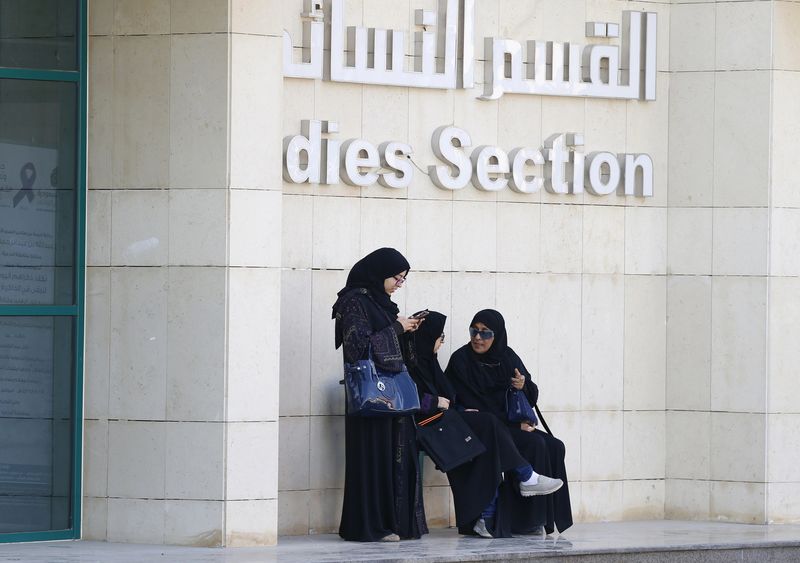RIYADH (Reuters) - Saudi Arabia said on Sunday that at least two women were elected to public office in the conservative Islamic kingdom after winning seats on municipal councils in Mecca and al-Jawf in Saturday's election.
The preliminary results were announced by local districts and published on the official Saudi Press Agency.
The election was the first in which women could vote and run as candidates, a landmark step in a country where women are barred from driving and are legally dependent on a male relative to approve almost all their major life decisions.
However, the election was for only two thirds of seats in municipal councils that have no lawmaking or national powers, and follows men-only polls in 2005 and 2011.
Salma bint Hazab al-Otaibi won a seat in the Madrika district of Mecca, the holiest city of Islam, while Hanouf bint Mufreh bin Ayad al-Hazimi won a seat in al-Jawf, in northern Saudi Arabia.
Results from Northern Borders Province, the southwestern province of Asir and the Eastern Province district of al-Ahsa, the only others to have been announced, had no successful women candidates.
Under King Abdullah, who died in January and who announced in 2011 that women would be able to vote in this election, steps were taken for women to have a bigger public role, sending more of them to university and encouraging female employment.
However, while women's suffrage has in many other countries been a transformative moment in the quest for gender equality, its impact in Saudi Arabia is likely to be more limited due to a wider lack of democracy and continued social conservatism.

Before Abdullah announced women would take part in this year's elections, the country's Grand Mufti, its most senior religious figure, described women's involvement in politics as "opening the door to evil".